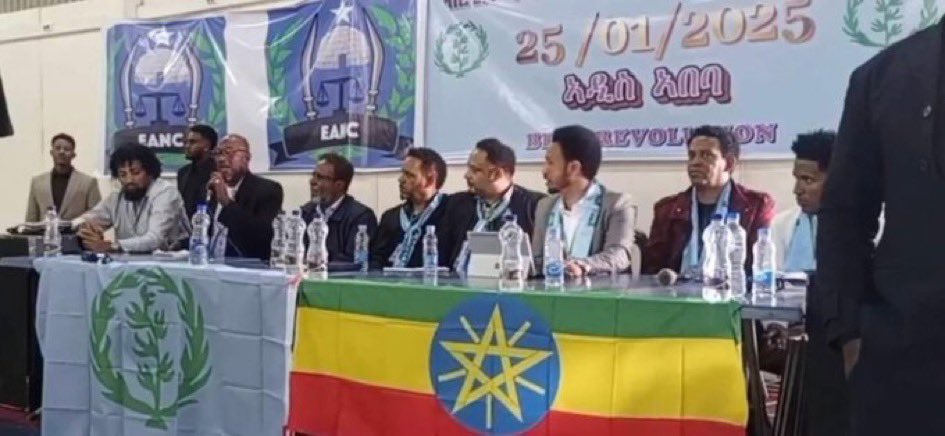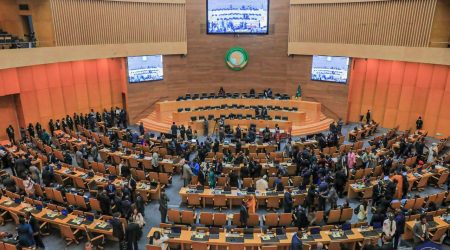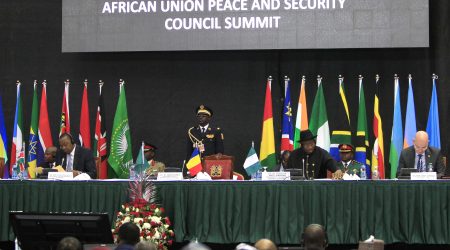
29
Jan
Eritrean Opposition Conference in Addis Ababa: A Significant Development in Regional Dynamics
In January 2025, Brigade Nhamedu, an Eritrean opposition group, held a conference in Addis Ababa, marking an important event for the Eritrean diaspora. This conference, the second of its kind in Ethiopia, highlighted the increasing influence of Eritrean youth in exile who are actively seeking change in their home country.
The gathering underscored a shift in Eritrean opposition politics. Over the years, various opposition groups had struggled with fragmentation, but recent developments suggest a growing level of unity, particularly in the context of regional instability. The conference in Addis Ababa illustrated the opposition’s ability to mobilize and organize, despite the challenges they face from the Eritrean government and its allies.
Many members of the Eritrean diaspora live in Ethiopia and neighboring countries, and their collective efforts have become a notable force in opposing the Eritrean regime. While the movement still faces significant challenges, particularly from the government’s efforts to discredit and disrupt the opposition, this conference reflected an important step forward in their political mobilization.
Ethiopia’s Interests in the Eritrean Opposition
For Ethiopia, the developments within the Eritrean opposition are of particular interest. Eritrea has long been a source of regional tension, particularly due to its support for insurgent groups within Ethiopia, such as the Oromo Liberation Front (OLF) and Ginbot-7. These groups have contributed to the instability in Ethiopia, and Eritrea’s ongoing support for them has been a key point of contention between the two nations.
Eritrea’s alignment with Egypt and Somalia in recent years has also raised concerns in Ethiopia. The formation of a tripartite alliance between these countries has complicated Ethiopia’s regional position, particularly with respect to the Nile River and broader geopolitical influence. In this context, a shift in Eritrean leadership through regime change could present Ethiopia with an opportunity to stabilize relations and mitigate some of these tensions. Ethiopia’s support for Eritrean opposition groups could help further this aim.
A regime change in Eritrea might allow Ethiopia to replace the historical antagonism between the two countries with a more stable and cooperative relationship. This shift could also open the door for broader regional cooperation, addressing shared security concerns and fostering economic integration in the Horn of Africa.
The Regional Implications of a Changing Eritrean Political Landscape
The Eritrean opposition’s growing influence reflects broader regional dynamics in the Horn of Africa. The challenges posed by Eritrea’s policies, both domestically and in terms of regional alliances, have contributed to the current tensions. Ethiopia’s support for the opposition could help reduce the instability in the region and create an environment where cooperation between the two countries becomes more feasible.
While a regime change in Eritrea would not be a quick or simple process, the growing unity within the opposition, as evidenced by the conference in Addis Ababa, suggests that the political landscape in Eritrea is shifting. Ethiopia’s involvement in this change could play a key role in shaping the future direction of Eritrean politics and its relationship with Ethiopia.
The discussion included innovative content creation techniques, audience interaction strategies, and performance metrics to maximize the platform’s impact. The session highlighted the importance of collaboration in crafting a more robust and dynamic social media strategy for the Institute.
This initiative reflects Horn Review’s ongoing commitment to supporting organizations in refining their digital communication strategies to achieve greater global outreach and engagement.










